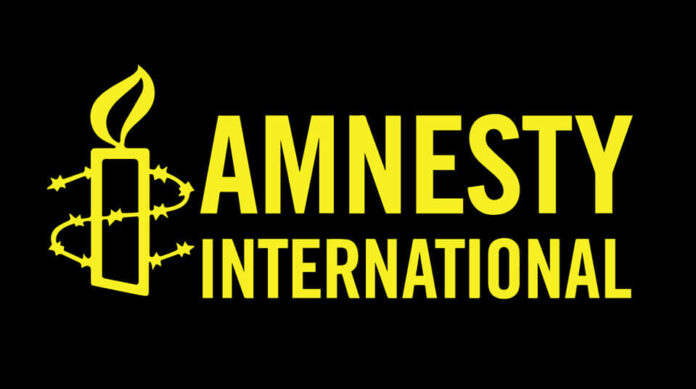The Enforcement Directorate (ED) in India has recently taken significant action against the Indians for Amnesty International Trust (IAIT), imposing a fine of Rs 1.5 crore. The agency has also provisionally attached assets worth Rs 1.54 crore in the bank accounts of IAIT under the Prevention of Money Laundering Act (PMLA) 2002. This move marks a critical step in a broader investigation into alleged financial irregularities and violations of the Foreign Contributions Regulatory Act (FCRA) by Amnesty International and its related entities.
Understanding Amnesty International Trust (IAIT)
Amnesty International Trust (IAIT) has been at the center of this controversy. The IAIT, along with other Amnesty entities in India, has been accused of circumventing FCRA regulations to receive foreign funds. Originally, the Amnesty International India Foundation Trust (AIIFT) was granted permission to collect foreign contributions from Amnesty International UK. However, this permission was later revoked, leading AIIFT to devise new methods to channel foreign funds into India.
The Genesis of the Investigation
The ED’s investigation is rooted in an FIR filed by the Central Bureau of Investigation (CBI), which alleged violations of the FCRA by Amnesty entities. According to the ED, after the cancellation of AIIFT’s FCRA license, Amnesty International India Pvt Ltd (AIIPL) and IAIT were created to continue receiving foreign funds under the guise of service exports and Foreign Direct Investment (FDI). This restructuring allowed them to bypass FCRA restrictions and carry on their NGO activities.
The Modus Operandi
The ED’s probe uncovered that Amnesty International UK had transferred approximately Rs 51.72 crore to AIIPL, purportedly for the export of services and FDI. However, there was a lack of substantial documentary evidence, such as invoices or agreement copies, to support these claims. This raised suspicions of money laundering and led to further scrutiny.
The Adjudicating Authority of ED has adjudicated a SCN issued to M/s Amnesty India International Pvt. Ltd.(AIIPL) and its CEO Shri Aakar Patel for contravention of the provisions of FEMA and imposed penalty of Rs. 51.72 Crore and Rs 10 Crore respectively.
— ED (@dir_ed) July 8, 2022
In addition to direct fund transfers, AIIT established an overdraft facility worth Rs 14.25 crore, backed by a Rs 10 crore fixed deposit from AIIPL. This facility was utilized for various NGO activities, including salaries and administrative expenses. The ED argues that this was a method to indirectly use foreign funds for prohibited activities under the FCRA.
The Legal Implications
The attachment of assets worth Rs 1.54 crore by the ED marks a significant step in the ongoing investigation. This attachment, coupled with the fine imposed, is intended to curb the alleged misuse of funds and ensure compliance with Indian financial regulations. The ED’s actions reflect a broader intent to enforce stricter oversight on foreign funding of NGOs, particularly those engaged in activities deemed sensitive or controversial by the Indian government.
Broader Context and Regulatory Actions
The regulatory landscape for foreign-funded NGOs in India has become increasingly stringent in recent years. The revocation of FCRA licenses, imposition of fines, and asset seizures are part of a concerted effort to monitor and control the flow of foreign funds into the country. The government argues that such measures are necessary to prevent foreign interference in domestic affairs and to safeguard national security.
The actions taken against Amnesty International have sparked a range of reactions. Supporters of the government’s stance argue that strict enforcement of FCRA regulations is essential to maintain transparency and accountability among NGOs. They contend that foreign funds should not be used to influence domestic policies or activities that could destabilize the country.
Conversely, critics argue that the government’s actions are part of a broader crackdown on dissent and civil society organizations. They claim that such measures stifle legitimate activism and restrict the space for NGOs to operate freely. Amnesty International, for its part, has consistently denied any wrongdoing and maintains that its operations in India are transparent and in compliance with all relevant laws.
The Path Forward
As the investigation progresses, it remains to be seen how these regulatory actions will impact Amnesty International and other NGOs operating in India. The ED’s crackdown is likely to set a precedent for future enforcement of FCRA regulations, potentially leading to more stringent scrutiny of foreign-funded entities.
The ED’s imposition of fines and attachment of assets against Amnesty International Trust is a landmark development in India’s ongoing efforts to regulate foreign funding of NGOs. While the government argues that such measures are necessary to ensure transparency and national security, critics fear that they may undermine the ability of civil society organizations to function independently. As this case unfolds, it will undoubtedly have significant implications for the regulatory environment and the broader landscape of NGO operations in India.


